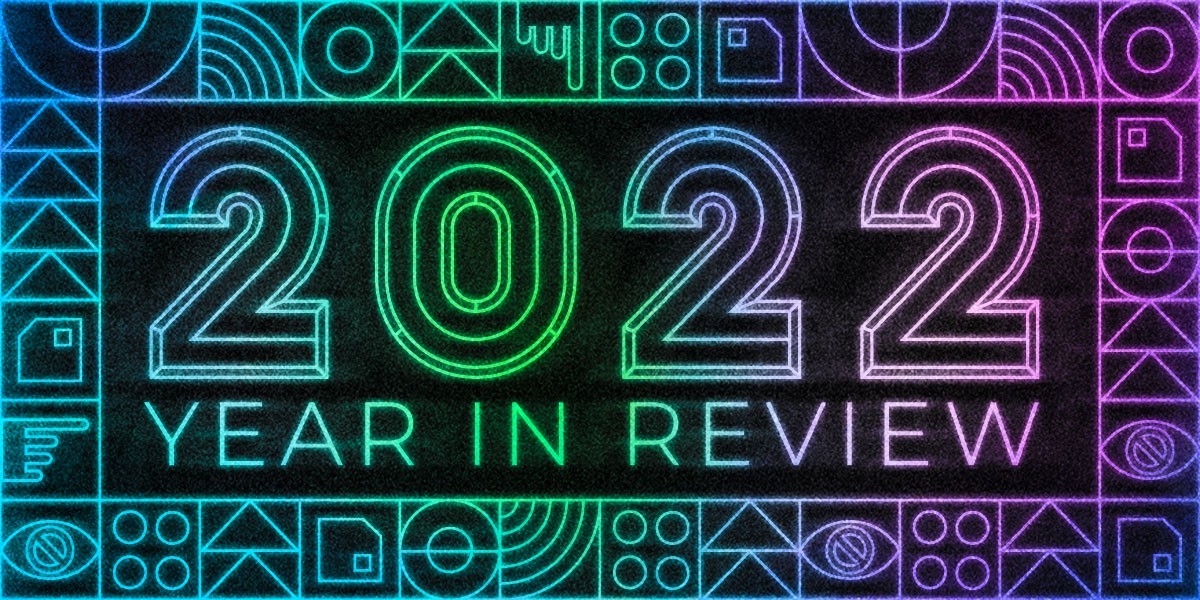2022 has been a big year for enforcement of the antitrust laws against tech companies, with the five largest (Apple, Google, Meta/Facebook, Amazon, and Microsoft) all facing lawsuits or investigations in the US. Government scrutiny of tech company mergers is on the rise too: the Federal Trade Commission has challenged Meta’s acquisition of VR fitness company Within Unlimited and Microsoft’s purchase of Activision Blizzard. Congress has debated a series of potential new laws to address the harmful effects of market power in Internet markets, and the European Union has actually done it, passing a sweeping new Digital Markets Act.
As they address tech monopolies, courts and enforcement agencies are beginning to acknowledge the interplay of user privacy and security concerns with antitrust, thanks in part to EFF’s advocacy. In February, we explained to a federal appeals court that Apple’s total control over apps on its mobile devices is not necessary to keep users safe, and in fact makes many users less safe.
Antitrust cases against the tech giants still face serious obstacles from a judiciary that’s become increasingly hostile to claims of monopoly abuse. EFF’s brief was filed in Epic Games’s challenge to Apple’s restrictive App Store policies, which was thrown out by a district court and is now awaiting an appeals court ruling. The FTC’s challenge to Facebook (now Meta) over its history of acquiring potential competitors like Instagram and WhatsApp has faced similar obstacles. We’ve also seen some small but significant wins, including suits against legal research provider Westlaw and computer gaming giant Valve getting past their initial legal hurdles.
It’s important that antitrust enforcers persist in their efforts because we can’t count on internet platforms and services that don’t face real competition to safeguard users’ rights. Sometimes they fail spectacularly. And even when they do a good job of protecting users, their protection is fickle, able to be stripped away with the whims of a mercurial CEO, or when cooperation with government surveillance suits their business interests.
Even while government enforcers and private parties make their cases in court, smart new laws are needed to address the unsolved problems of tech monopolies. The EU is attempting this in earnest with its new Digital Markets Act, a sweeping regulation that designates some of the largest online platforms as “gatekeepers” and places new obligations on those companies to protect business users’ ability to compete. The DMA includes interoperability requirements for these gatekeepers. Interoperability is a vital tool to empower consumers, but the EU’s decision to focus first on messaging apps like WhatsApp and iMessage raises concerns about those apps’ ability to continue providing secure, end-to-end encryption. In 2023, EFF will be working with the EU’s enforcement arm to protect secure messaging as we fight monopolies.
The United Kingdom is also stepping up its efforts with the creation of a new Digital Markets Unit within its competition authority. EFF has written in support of new enforcement powers for that agency, and to support their investigation into the role of mobile web browsers as platforms for app competition.
Meanwhile, in the US, a slew of proposals for new laws has not led to much progress. The American Innovation and Competition Online Act, the Open App Markets Act, and the ACCESS Act all contain important elements of a new pro-competition regime for online platforms, but none has been enacted yet. The Digital Advertising Act would take a different approach, requiring the various roles within online advertising markets to be filled by independently run companies, removing incentives to cheat and drive down web publishers’ income. It too has stalled in Congress.
One thing that this year’s battles over new competition policy for tech have shown us is that creating new antitrust exemptions for favored industries, no matter how important they are, is not the way to fight tech monopolies. The Journalism Competition and Preservation Act, while billed as a way to fund journalism in the internet age, would only give more market power to highly consolidated media conglomerates and their Big Tech allies. That’s why we’re disappointed that Congress has spent so much legislative time on JCPA that could have been used to perfect and pass important fixes like ACCESS.
We can have privacy, security, and competition too. In fact, we must have competition to protect privacy and security for the long haul. This year, we saw an incredible amount of energy, legal maneuvers, and smart new thinking directed toward fixing tech’s monopoly problem. If we persist, we can win lasting change in 2023 and beyond.










